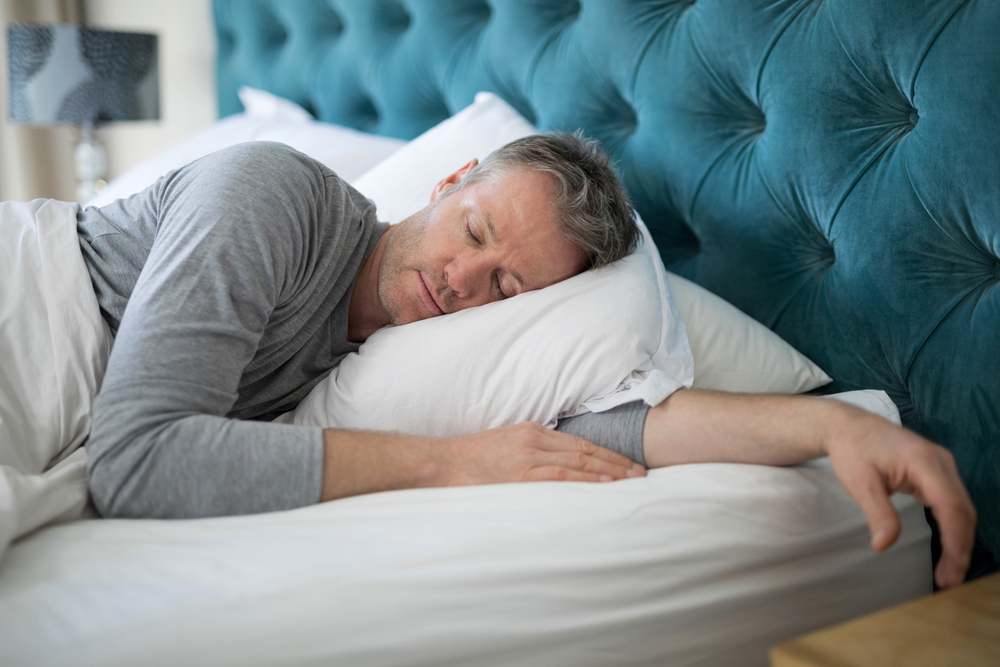Our body’s most important function is its cycle of restorative sleep. Lack of sleep impairs various functions in the body and can lead to increasing health conditions over time. During sleep, both brain functions and physical health are restored and recharged for the next day.
Getting insufficient sleep on a regular basis puts your body at risk of developing serious chronic illnesses such as heart disease and diabetes, and can even shorten life expectancy. Improving sleep habits can be very beneficial, and can be done in a variety of ways.
Discussing individual sleep patterns with a doctor in family medicine or a general practitioner is the best first step before attempting any at-home treatments. Once a full medical history has been documented, there are a variety of ways to improve sleep at home.
Setting the proper atmosphere
The human body is equipped with an internal clock known as its circadian rhythm. This function keeps track of time based on exposure to light. In order to keep the circadian rhythm on track, you should be exposed to bright lights during the day and keep the lights off when going to sleep. This tells the body when it’s time to function and when it’s time to rest.
Blue lights from electronics (like our computer and phone screens) trick the body’s circadian rhythm into thinking it’s still daytime and that your body should be awake and functioning. Turning off electronics such as phones, tablets, and televisions up to two hours before attempting sleep helps prepare the brain for bed and tells the internal rhythm to power down. In the same respect, keeping all forms of light — lamps, book lights, etc — off for up to 30 minutes before attempting sleep can improve sleep quality.
Avoiding caffeine
Caffeine is a common addiction in adults, but can have detrimental effects on sleep quality. Drinking caffeine too late in the day stimulates the body’s nervous system and restricts the body’s ability to rest. While many believe avoiding caffeine for a couple of hours before bed will be enough to fall asleep, caffeine can actually stay in the blood anywhere from six to eight hours. Drinking any large amount of caffeine before dinner hours is ill-advised, particularly if you suffer from frequent insomnia.
Caffeine not only affects the body’s ability to fall asleep, it also has effects on the quality of sleep achieved. Caffeine reaches its peak level of stimulus within half an hour of consumption. It then takes three to five hours to reach what’s referred to as “half-life”, meaning half of it has been eliminated by the body. The second half of the caffeine intake remains in the bloodstream for several more hours. The body may fall asleep once half of the caffeine is eliminated, but it won’t reach a state of restorative deep sleep with the remaining caffeine still coursing through.
Try holistic supplements
Increasingly popular in sleep studies is the positive effects of holistic remedies on sleep patterns. Taking supplements such as melatonin or chamomile teas can relax the body and mind in order to fall asleep faster and stay asleep longer. These particular products work by replacing deficiencies in hormones created naturally by the human body.
For instance, melatonin is a naturally-produced hormone that sends signals to the brain that it’s time to sleep. Melatonin’s most effective quality is shortening the time it takes to fall asleep and consequently lengthening the amount of sleep per night.
Similarly, CBD oil products have been shown to improve overall sleep patterns in their ability to ease pain and anxiety. Other studies have shown an interaction between CBD and the receptors in the human brain that control the body’s circadian rhythm to alert the brain that it’s time to power down for the night.
Whether medicinal or holistic, it’s important to keep track of and treat any sleep disruptions on a daily basis. Without sleep, the human body can’t function at its highest capacities. While it can often take time for an adjustment to affect sleep long-term, limiting insomnia triggers for an extended period of time can increase the likelihood of quality sleep long-term.
Related Posts












